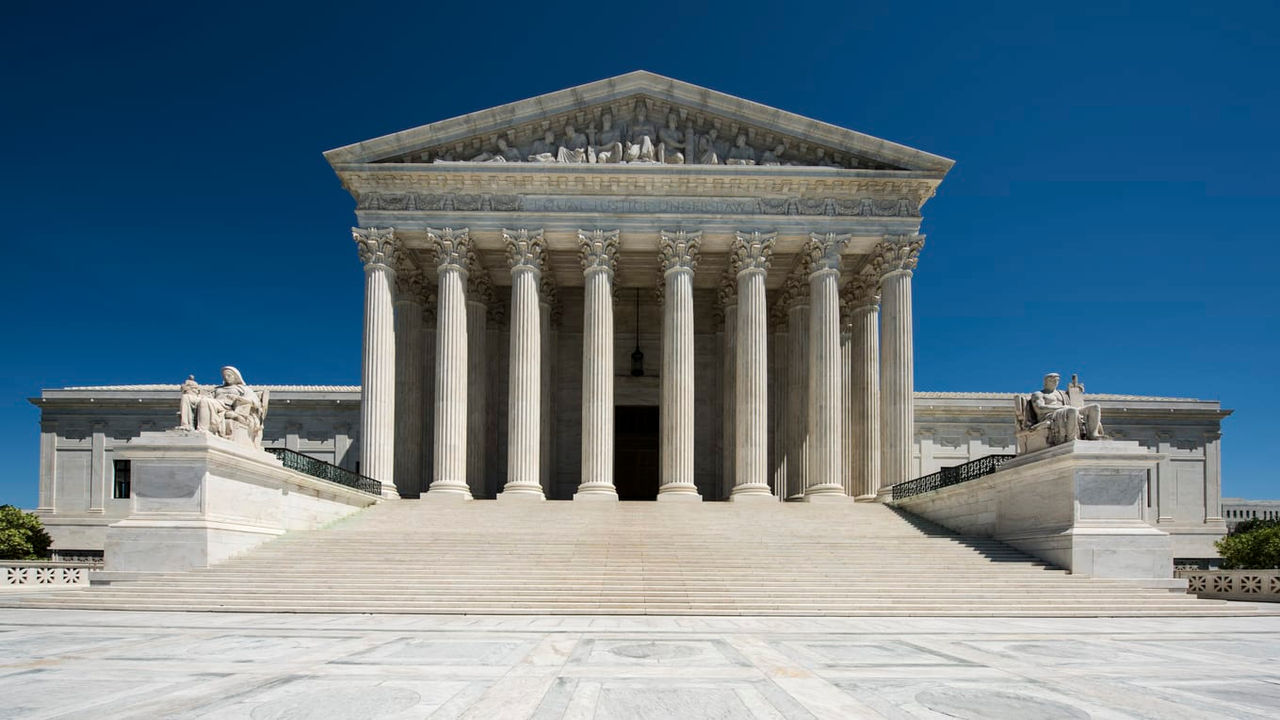The Supreme Court will begin hearing oral arguments Oct. 7 for the 2019-2020 term, and it will tackle big employment law issues starting in the first week of oral arguments.
"A sneak peek at the early docket confirms that you can expect to see fireworks over the next nine months, as the Supreme Court has loaded its term with interesting and impactful cases," said Randy Coffey, an attorney with Fisher Phillips in Kansas City, Mo., and Richard Meneghello, an attorney with Fisher Phillips in Portland, Ore.
"And of course, as in all years, we expect that the court may fill its docket with additional workplace law decisions as the term gets off and running," they said.
We've rounded up articles and resources from SHRM Online and other trusted media outlets on upcoming Supreme Court cases.
Are LGBT Workers Protected Under Federal Employment Law?
The most anticipated employment decisions of the year are expected from a trio of cases asking whether Title VII of the Civil Rights Act of 1964 prohibits employment discrimination based on lesbian, gay, bisexual and transgender (LGBT) status. Federal appellate courts have disagreed on the issue. Two consolidated cases (Altitude Express Inc. v. Zarda and Bostock v. Clayton County, Georgia) address workplace protections based on sexual orientation, and R.G. & G.R. Harris Funeral Homes Inc. v. EEOC will consider employment rights based on gender identity. Notably, the Equal Employment Opportunity Commission maintains that LGBT workers are covered under Title VII's protection from sex-based discrimination in the workplace. The U.S. Department of Justice, however, submitted arguments to the high court that take the opposite position, arguing that Title VII does not protect workers based on gender identity or sexual orientation. Employers should note, however, that despite uncertainty at the federal level, many states already prohibit employment discrimination based on these characteristics. The Supreme Court will hear oral argument in these cases on Oct. 8.
[SHRM members-only toolkit: Managing Equal Employment Opportunity]
Can the Trump Administration End the DACA Program?
The high court will also review three consolidated cases on the federal government's Deferred Action for Childhood Arrivals (DACA) program, which allows some undocumented immigrants who came to the United States as children to temporarily work and avoid deportation. President Barack Obama's administration launched the DACA program in 2012. However, under President Donald Trump in 2017, the Department of Homeland Security (DHS) announced it would rescind the program. Since then, several federal appellate courts blocked the government from rescinding DACA. The courts found that Obama had the right to create the program by executive action and that Trump's decision to eliminate it was likely "arbitrary, capricious or otherwise not in accordance with law." The federal government has asked the Supreme Court to decide if the courts can review the DHS's decision to wind down the DACA program and if it's legal for the DHS to end DACA. Oral argument is set for Nov. 12.
(SHRM Online)
Can an Employee Who Didn't Read Benefits Disclosures Sue?
In Intel Corp. Investment Policy Committee v. Sulyma, a former Intel employee filed a lawsuit against the tech company's retirement plan committee for allegedly breaching fiduciary duties by making poor investments—but the committee said the employee waited too long to file the lawsuit. The Employee Retirement Income Security Act has a three-year limit to file such claims, and Intel's retirement committee argued that the lawsuit is barred because the employee received all the relevant plan investment information more than three years before he filed the complaint. But the employee argued that his claim is timely because he doesn't recall reading any of the investment information until just before he filed his lawsuit. Oral argument is set for Dec. 4.
(SHRM Online)
What Standard Applies to a Worker's Bias Claim?
In Babb v. Wilkie, the high court will consider the standard of proof for federal government workers who bring claims under the Age Discrimination in Employment Act. Federal laws against employment discrimination may have different provisions for private-sector and public-sector employees. In this case, the government argued that a strict "but-for" standard should apply to federal workers' claims, meaning that the employee must show the adverse employment action would not have been taken "but for" the employer's bias. The employee in the case argued that a more lenient standard should apply that considers whether age bias was a motivating factor for the negative employment decision. The Supreme Court will also hear Comcast v. National Association of African American-Owned Media, to review the standard of proof in race discrimination claims under Section 1981 of the Civil Rights Act of 1866. The Supreme Court will hear oral argument in Comcast on Nov. 13 and Babb on Jan. 15.
(Bloomberg Law) and (Fisher Phillips)
An organization run by AI is not a futuristic concept. Such technology is already a part of many workplaces and will continue to shape the labor market and HR. Here's how employers and employees can successfully manage generative AI and other AI-powered systems.




